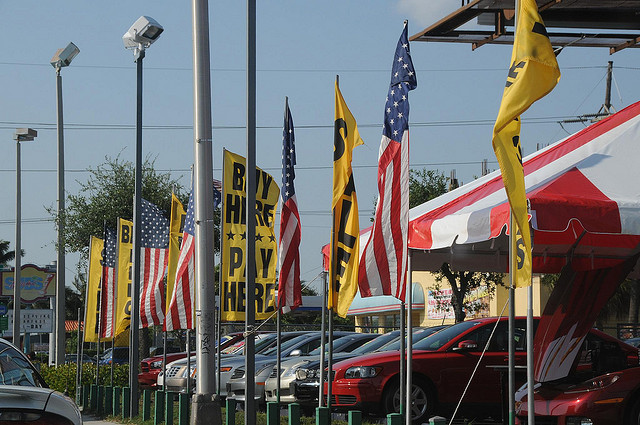What to know about buying a used car
With ever-inflating cost of buying a new car these days, and the stagnant incomes and disappearing jobs of the middle class, it is increasingly tempting to purchase a used car instead of the latest model. While there are some great deals out there, many used car dealers are in the business to make money, so deals can be hard to find.
Additionally, many cars that look like a steal contain some nasty hidden surprises, testifying to the unsavoury element present in this industry. Therefore, it pays to have an abundance of caution and a wealth of knowledge before stepping into the used car shopping arena.
Don’t be the fish that falls for a bad deal hook, line, and sinker: read up on what you need to know about buying a used car, and you’ll find that diamond in the rough before you know it!
1) Get the CarFax
This report may cost you money, but once you’ve narrowed your focus to a series of used Ford cars, you’ll want to know everything that this car has been through in its life. All you need to get this tell-all dossier is the vehicle’s VIN (Vehicle Insurance Number), which can be found on the dashboard of the driver side, or on the driver side door, beneath its locking mechanism.
If you can’t find the VIN, run (don’t walk) away from this dealer … he has tampered with the vehicle, or bought the car from criminal elements that have removed it.
2) Double check: look under the car for rust
Sometimes, major events like flooding may have damaged this car before authorities could tag them as damaged goods. Many cars in the wake of Hurricane Katrina were scooped up like this and pedalled to unknowing dealers and consumers, so be especially vigilant for some time after a major flooding disaster in your region, country, or continent.
3) Inspect the rest of the vehicle for wear and tear
Other things you’ll want to check out are tire wear, signs of recent paint jobs to cover body damage, and the state of nuts and bolts under the hood. In the case of the latter, if the parts look rounded and/or striped, it could be a sign of inferior workmanship. Additionally, pay special attention to the odometer: if the kilometres/miles look suspiciously low given the overall condition/age of the car, raise the red flag!
4) Go for a test drive
Looking at the car’s external physical condition is only half the puzzle; to get the complete picture of its road-worthiness, you’ll need to take her for a drive. When you are cruising along your test route, pay attention to the following things that could be concerning:
a) Start it cold, and listen to it … did it start immediately, or was it labored?
b) Try out all the features, from the wipers to the radio and the A/C … none of these should affect performance in any way.
c) Clunking noises could mean transmission issues, shuddering when brakes could mean warped pads, and blue smoke when accelerating means your engine is burning oil … not good!
Take Your Time
Don’t rush into a used car purchase that will only lead to you burning bricks of money in the months and years to come. There are plenty of well-maintained vehicles out there with plenty of life left in their wheels … be patient and you’ll find it at the right price!




